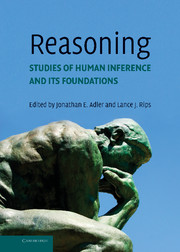49 - On the Very Idea of a Conceptual Scheme
Published online by Cambridge University Press: 05 June 2012
Summary
Philosophers of many persuasions are prone to talk of conceptual schemes. Conceptual schemes, we are told, are ways of organizing experience; they are systems of categories that give form to the data of sensation; they are points of view from which individuals, cultures, or periods survey the passing scene. There may be no translating from one scheme to another, in which case the beliefs, desires, hopes and bits of knowledge that characterize one person have no true counterparts for the subscriber to another scheme. Reality itself is relative to a scheme: what counts as real in one system may not in another.
Even those thinkers who are certain there is only one conceptual scheme are in the sway of the scheme concept; even monotheists have religion. And when someone sets out to describe “our conceptual scheme,” his homey task assumes, if we take him literally, that there might be rival systems.
Conceptual relativism is a heady and exotic doctrine, or would be if we could make good sense of it. The trouble is, as so often in philosophy, it is hard to improve intelligibility while retaining the excitement. At any rate that is what I shall argue.
We are encouraged to imagine we understand massive conceptual change or profound contrasts by legitimate examples of a familiar sort. Sometimes an idea, like that of simultaneity as defined in relativity theory, is so important that with its addition a whole department of science takes on a new look.
Information
- Type
- Chapter
- Information
- ReasoningStudies of Human Inference and its Foundations, pp. 986 - 994Publisher: Cambridge University PressPrint publication year: 2008
Accessibility standard: Unknown
Why this information is here
This section outlines the accessibility features of this content - including support for screen readers, full keyboard navigation and high-contrast display options. This may not be relevant for you.Accessibility Information
- 2
- Cited by
